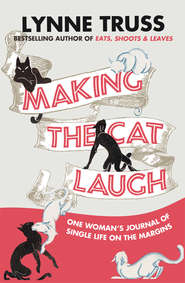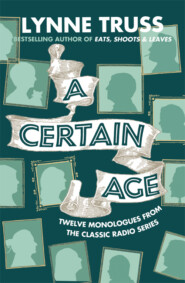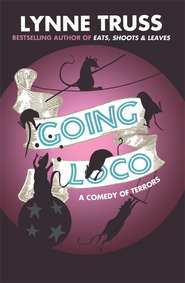По всем вопросам обращайтесь на: info@litportal.ru
(©) 2003-2024.
✖
Talk to the Hand
Автор
Год написания книги
2018
Настройки чтения
Размер шрифта
Высота строк
Поля
People who object to automated switchboards are generally dismissed as grumpy old technophobes, of course. But to me it seems plain that modern customer relations are just rude, because switchboards manifestly don’t attempt to meet you half-way. Manners are about imagination, ultimately. They are about imagining being the other person. These systems force us to navigate ourselves into channels that are plainly for someone else’s convenience, not ours. And they then have the nerve, incidentally, to dress this up as a kind of consumer freedom. “Now you can do all this yourself!” is the message. “Take the reins. Run the show. Enjoy the shallow illusion of choice and autonomy. And by the way, don’t bother trying to by-pass this system, buddy, because it’s a hell of a lot smarter than you are.”
This “do-it-yourself” tactic occurs so frequently, in all parts of life, that it has become unremarkable. In all our encounters with businesses and shops, we now half expect to be treated not as customers, but as system trainees who haven’t quite got the hang of it yet. “We can’t deal with your complaint today because Sharon only comes in on Tuesdays,” they say. “Right-oh,” you say. “I’ll remember that for next time.” In a large store, you will be trained in departmental demarcations, so that if you are buying a towel, you have to queue at a different counter – although there is no way you could discover this without queuing at the wrong counter first. Nothing is designed to put the customer’s requirements above those of the shop. The other day, in a chemist’s on Tottenham Court Road, the pharmacist accidentally short-changed me by £1, and then, with sincere apologies, said I would have to wait until he served his next customer (whenever that might be), because he didn’t have a password for the till. While we were discussing the likelihood of another customer ever happening along, another till was opened, a few yards away. I asked if he could get me my change from the other till, and he said, with a look of panic, “Oh no, it has to come from this one.” Now, this was not some callow, under-educated youth. This was a trained pharmacist; a chap with a brain. I suggested that he could repay the other till later – and it was as though I had explained the theory of relativity. He was actually excited by such a clever solution, which would never have occurred to him. Lateral thinking on behalf of the customer’s convenience simply wasn’t part of his job.
3 My Bubble, My Rules
This is the issue of “personal space”, about which we are growing increasingly touchy. One of the great principles of manners, especially in Britain, is respecting someone else’s right to be left alone, unmolested, undisturbed. The sociolinguists P. Brown and S. C. Levinson, in their book Politeness: Some Universals in Language Usage (1987), coined the useful term “negative politeness” for this. The British are known to take this principle to extremes, because it chimes with our natural reticence and social awkwardness, and we are therefore simply outraged when other people don’t distinguish sufficiently between public and private space. The advent of the mobile phone was a disaster for fans of negative politeness. We are forced to listen, openmouthed, to other people’s intimate conversations, property transactions, business arrangements, and even criminal deals. We dream up revenges, and fantasise about pitching phones out of the window of a moving train. Meanwhile, legislation on smoking in public places has skewed our expectations of negative politeness, so that if a person now lights a cigarette in our presence anywhere, we cough and gag and mutter, and furiously fan the air in front of our faces.
There is an episode of The Simpsons in which Bart has a contagious mosquito bite, and is encased in an isolation bubble, and when he is told off for slurping his soup, invokes the memorable constitutional right: “Hey, my bubble, my rules.” Increasingly, we are all in our own virtual bubbles when we are out in public, whether we are texting, listening to iPods, reading, or just staring dangerously at other people. Concomitantly, and even more alarmingly, our real private spaces (our homes; even our brains) have become encased in a larger bubble that we can’t escape: a communications network which respects no boundaries. Our computers are fair game for other computers to communicate with at all times. Meanwhile, people call us at home to sell us things, whatever the time of day. I had a call recently from a London department store at 8pm to arrange a delivery, and when I objected to the hour, the reply was, “Well, we’re here until nine.” There is no escape. In a Miami hotel room last year, I retrieved the message flashing on my phone, and found that it was from a cold caller. I was incensed. Someone in reception was trying to sell me a time share. In my hotel room! No wonder people are becoming so self-important, solipsistic, and rude. It used to be just CIA agents with ear-pieces who walked round with preoccupied, faraway expressions, and consequently regarded all the little people as irrelevant scum. Now, understandably, it’s nearly everybody.
4 The Universal Eff-Off Reflex
It ought to be clear by now that manners fulfil a number of roles in social life. Arguably, their chief role is to make us feel safe in the company of strangers. In his book The English (1998) Jeremy Paxman says that manners seem to have been developed by the English “to protect themselves from themselves”; there is an attractive theory that, back in the mists of time, language evolved in humans simply as a less ghastly alternative to picking fleas off each other. We placate with good manners, especially when we apologise. Erving Goffman, in his Relations in Public (1971), wrote that an apology is a gesture through which an individual splits himself into two parts: the part that is guilty of the offence, and the part that dissociates itself from the crime and says, “I know why this was considered wrong. In fact, I think it’s wrong myself.” Goffman also explains what is going on when a person tells off a naughty child or dog in public: he is signalling to other people that while he loves the child/dog, he is also responsible for the child/dog, and since he clearly shares the general view of how the child/dog has just behaved, the matter is in hand and everyone can calm down.
Increasingly, it seems, this splitting does not occur – and to those who expect this traditional nod towards shared standards, the new behaviour can be profoundly scary. Point out bad manners to anyone younger than thirty-five, and you risk a lash-back reflex response of shocking disproportion. “Excuse me, I think your child dropped this sweet wrapper.” “Why don’t you Eff Off, you fat cow,” comes the automatic reply. A man on a London bus recently told off a gang of boys, and was set on fire. Another was stabbed to death when he objected to someone throwing food at his girlfriend. How many of us dare to cry, “Get off that skateboard, you hooligan!” in such a moral climate? In the old days, when the splitting occurred, a person would apply a bit of moral honesty to a situation and admit that he deserved to be told off. Not any more. Criticism is treated (and reacted to) as simple aggression. And this is very frightening. As Stephen L. Carter points out in his book Civility (1998), people now think that “I have a right to do X” is equal to “I am beyond censure when I do X.” The comedian Jack Dee tells the true story of a health visitor friend who was appalled to find a quite large child still suckling from his mother. “I wonder whether we should be putting a stop to this?” she said. At which, the boy detached himself from the breast, told her to Eff Off, and then went back to his dinner.
One hesitates to blame television for all this because that’s such an obvious thing to do. But, come on. Just because it’s obvious doesn’t mean it’s not true. Popular culture is fully implicated in the all-out plummeting of social standards. Abuse is the currency of all reality shows. People being vulgar and rude to each other in contrived, stressful situations is TV’s bread and butter. Meanwhile the encouragement of competitive, material self-interest is virtually its only other theme. The message and content of a vast amount of popular television can be summed up in the words, “And you can Eff right Off, too.” No wonder people’s aspirations are getting so limited, and their attitude to other people so cavalier. I got in a taxi recently and the driver said, “Do you know what I’d do if I had a lot of money?” I thought, well, take a holiday, buy a smallholding, give it to the Royal Society for the Protection of Birds? He said, “I’d crash the car through the wall of that pub, drive right up to the bar, wind down the window and say, ‘Mine’s a pint, landlord, and you can Eff Off if you don’t like it coz I’m buying the place.’”
5 Booing the Judges
The timing was significant. Emerging, bruised and a bit horrified, from encounters with the uppity British public in the 2005 election campaign, the Prime Minister, Tony Blair, launched a campaign for the restoration of “respect”. “A bit late,” some of us muttered, when we heard. Respect was surely already a huge area for public concern. The humblest lip-reading TV viewer can spot a labio-dental fricative (or “F”) being formed on the lips of a footballer, with the result that when a permanently livid chap such as Wayne Rooney, with his veins sticking out on his neck, and his jug-ears burning with indignation, hurls seventeen assorted labio-dental fricatives at the referee, there is no interpreting this as, “Actually, it was a bit of a dive, sir, but now I’ve learned my lesson and I shan’t be doing it again.” Sport is supposed to be character-forming, but people are turning out like Wayne Rooney, and we are in deep trouble. Blaming the parents is an attractive option here, by the way. In 2002, the American research unit Public Agenda published Aggravating Circumstances: A Status Report on Rudeness in America, in which only 9 per cent of those questioned thought that children behaved respectfully towards adults, and 71 per cent reported seeing parents at sports events “screaming” at coaches, referees, and players.
Disrespect for older people; disrespect for professional people; disrespect for property – every day we are newly shocked at the prevalence of this kind of rudeness. Egalitarianism was a noble aim, as was enlightened parenting, but both have ploughed up a lot of worms. Authority is largely perceived as a kind of personal insult which must be challenged. On TV competitions, judges are booed and abused for saying, “Look, I’m sorry, he can’t dance!”, because it has become a modern tenet that success should have only a loose connection with merit, and that when “the people” speak, they are incontestably right. Meanwhile, old people are addressed by their first names, teachers are brusquely informed, “That’s none of your business!” by small children, judges are abused in court by mouthy teenagers, and it turns out that even if you’ve got the exact money, you can’t buy this jumper because Jason’s got the key to the till and he’s a muppet, he’s out the back at the moment, texting his girlfriend who’s just come back from Rhodes which was all right but she wouldn’t go again, she’s more of a Spain person, if you know what I mean, I like Spain, I’ve been there twelve times, but then I’m a bit of an iconoclast.
The most extreme form of non-deference, of course, is to be treated as actually absent or invisible. People talk across you on planes, or chat between themselves when they are serving customers. Nothing – nothing – makes me more angry than this. I get sarcastic. I wave in people’s faces. I say aloud, “I’m sure I’m standing here. Can you see me standing here? Why don’t you just catch my eye for a second to acknowledge that I am standing here?” For some time now, I have been carrying a Sooty glove-puppet on shopping expeditions, so that I can at least have a decent conversation when buying stuff in Ryman’s. “What’s that, Sooty? That will be £3.99? What’s that, Sooty? Thank you very much? What’s that, Sooty? Goodbye?”
6 Someone Else Will Clean It Up
Of all forms of rudeness, the hardest for a lot of people to understand is the offence against everybody. The once-prevalent idea that, as individuals, we have a relationship with something bigger than ourselves, or bigger than our immediate circle, has become virtually obsolete. For this reason, many people simply cannot see why they shouldn’t chuck their empty burger box out of the car window. They also don’t see any reason to abide by traffic laws unless there is a speed camera advertised. “That’s so selfish!” is a cry that has no judgemental content for such people, and little other meaning either. Yes, we have come a long way from Benjamin Rush, in 1786, writing, “Let our pupil be taught that he does not belong to himself, but that he is public property.” These days, of course, the child is taught to believe quite the opposite: that public property, in the natural way of things, belongs to him.
The interesting thing is that, cut free from any sense of community, we are miserable and lonely as well as rude. This is an age of social autism, in which people just can’t see the value of imagining their impact on others, and in which responsibility is always conveniently laid at other people’s doors. People are trapped in a kind of blind, brute state of materialism. “There is no such thing as society,” Mrs Thatcher said. Well, there certainly isn’t now. The latest Keep Britain Tidy campaign has thrown up an interesting moral puzzler for traditionalists by targeting the obvious self-interest of teenage litterers. It trades on – well, what else? Oral sex. Ingenious, or what? “While you’re down there…” runs the slogan, over the sort of come-and-get-it-big-boy pictures you normally see on little cards in phone booths before they are removed by the police. The idea is that, while you’re down there, you will also place empty beer cans in the bins provided.
I have to report that my reaction to the “While you’re down there…” posters is, to say the least, mixed. I am actually revolted by their cynicism, disgusted by the explicitness, concerned that teenage promiscuity might be a high price to pay for less litter, but on the other hand relieved and pleased that, in a poster aimed at young people, the ellipsis has been used correctly and that there is an apostrophe in the “you’re”. In other words, it actually could have been worse.
This book is, obviously, a big, systematic moan about modern life. And the expression “Talk to the hand” sort of yokes it all together. “Talk to the hand” specifically alludes to a response of staggering rudeness best known from The Jerry Springer Show – “Talk to the hand, coz the face ain’t listening”, accompanied by an aggressive palm held out at arm’s length. I chose it for the title because it’s the way I’ve started to see the world. Nearly sixty years ago, George Orwell wrote in Nineteen Eighty-Four that the future was a boot stamping on a human face for ever. I see it as a forest of belligerent and dismissive palms held up to the human face instead. Thank you for choosing to hold for an assistant. There’s no one here to help you at this time. Nobody asked you to hold the Effing door open. An error of type 506 has occurred. Please disconnect, check your preferences, then go off and die. Do NOT type PIN until requested. Please continue to hold, your call is important to us. Sharon’s in charge of envelopes and she isn’t in on Fridays. You need to go to the other till. Have you considered on-line banking? Eff Off, fat cow. If you would like to speak to an assistant, please have your account details ready and call back in 200 years.
People tell me, by the way, that it is possible to get terribly rude service in France, and that I’ve just had a lot of unusually nice experiences. Ho hum. I also hear from Americans that Britain is friendly and ever so polite, to which I reply, “Surely America is friendly and ever so polite (except at immigration)?” and they say, oh no, we’re the rudest country on earth. In her book about the English, Kate Fox conducted field experiments, such as bumping into people to see if they would say “Sorry” – which 80 per cent of them duly did. She concluded that manners have not declined, and that when we exclaim at the standards of courtesy on the roads, we ought to remember what it’s like to drive in Italy. We still queue up nicely, maintain a belief in fair play, and when we don’t like something, we make an ironic joke about it (because we don’t like to make a scene). And yet, if you ask people, they will mostly report with vehemence that the world has become a ruder place. They are at breaking point. They feel like blokes in films who just. Can’t. Take. Any. More. So what on earth is going on?
THE FIRST GOOD REASON Was That So Hard to Say? (#ulink_03e4886d-f3e4-5c70-8071-4940ee6f6401)
The trouble with traditional good manners, as any fool knows, is judging where to draw the line. Politeness is, after all, a ritual of tennis-like exchange and reciprocity, of back-and-forth pick and pock, and unfortunately there is rarely an umpire on hand to stop play when the tie-break has been going on for four hours already and it’s got so dark you can no longer see the net. “Thank you,” says one polite person to another.
“No, thank YOU,” comes the response.
“No, thank YOU.”
“No, really, the gratitude is all mine.”
“Look, take it, you swine.”
“No, please: I insist.”
“After you, I said.”
“No, please: after YOU.”
“Look, I said after you, fatso.”
“No, please, after you.”
“After YOU.”
“After YOU.”
Did they ever discover perpetual motion in physics? In manners, it has been around for aeons. In 1966, Evelyn Waugh famously issued a warning to Lady Mosley that, if she wrote to him, she would always receive an answer. “My father spent the last twenty years of his life answering letters,” he wrote. “If someone thanked him for a wedding present, he thanked them for thanking him, and there was no end to the exchange but death.”
But although it can get out of hand, the principle of civil reciprocity is a solid one, for which reason it is an occasion for total, staggering dismay that it appears to be on its way out. The air hums with unspoken courtesy words, these days. You hold a door open for someone and he just walks through it. You let a car join traffic, and its driver fails to wave. People who want you to move your bag from a seat just stare at you until you move it; or sometimes they sit on it, to make the point more forcibly. As for the demise of “please”, you may overhear a child demanding in a supermarket at the top of its voice, “I want THAT ONE!” Hope briefly flares when the harassed mother bellows back, “You want that one, WHAT?” But you might have known how this would turn out. “I want that one, YOU EFFING BITCH!” shouts the kid in response.
Please, thank you, excuse me, sorry – little words, but how much they mean. Last week, a young woman sitting opposite me on a train picked up my discarded Guardian and just started reading it, and I realised afterwards that, had I wanted to do something similar, I would have used the maximum of politeness words (“Excuse me, sorry, may I? Thank you”) instead of none at all. The near extinction of the word “sorry” is a large subject we will treat elsewhere, but it seems appropriate to repeat here the story of the Independent’s Janet Street-Porter, who, while filming a documentary about modern education last year, tried to prompt the children at a school assembly to grasp the importance of apology. “Children,” she said, “in every family home, there’s a word which people find it really hard to say to each other. It ends in ‘y’. Can anyone tell me what it is?” There was a pause while everyone racked their brains, and then someone called out, “Buggery?”
As this book progresses, we will be dealing with sources of true, eye-watering horror and alienation, but the decline of courtesy words seems a good, gentle place to start because the saying of such words appears quite a simple matter. Unfortunately, however, it is not quite as simple as it looks. Besides being the sine qua non of good manners, what do these words really do? Well, they are a ritual necessary to life’s transactions, and also magic passwords, guaranteed to earn us other people’s good opinion and smooth the path to our own desires. Politeness is itself a complicated matter. When it works, does it draw people comfortably together, or does it actually keep them safely apart? And what of its moral content? Surely if we hold doors open, we are acting altruistically? Yet our furious, outraged, jumping-up-and-down reaction when we are not thanked would indicate that we hold doors open principally to procure the reward of a public pat on the back. Why is it so important to us that everyone should affirm a belief in the same codes of behaviour? Why is it so scary when someone doesn’t? Should we get out more? Or is going out the problem, and we should actually stay in?
Any study of the history of the subject of manners begins with Norbert Elias’s pioneering work The Civilizing Process, which began life as two volumes, The History of Manners and State Formation and Civilization, in 1939. It is not, sadly, the easiest of books to read, and I have gone quite pale and cross-eyed in the attempt, but it famously includes a section on the advance of etiquette in the early modern period which has been plundered by historians of society ever since it was first translated into English in the 1960s. Taking such etiquette issues as urinating, nose-blowing and spitting, Elias traces the norms for these activities in western Europe over several hundred years. For example, in the Middle Ages, “Do not spit into the bowl when washing your hands” becomes, by the time of Erasmus’ De civilitate morum puerilium (On Good Manners for Boys) in 1530, “Turn away when spitting, lest your saliva fall on someone…It is unmannerly to suck back saliva.” By 1714, we find in a French manual the excellent advice: don’t spit such a great distance that you have to hunt for the saliva to put your foot on it.
Obviously, a modern person is hoping, sooner or later, for the plain injunction, “Look, just stop spitting! What is it with all this spitting?” – but that’s quite a long time coming. For hundreds of years, people were advised that saliva (not phlegm, which is odd) was better out than in, and that placing your foot over your own little pool of spittle marked you out as a toff with finer feelings. What a relief when, at last (in 1774), it becomes the mark of a gent not to spit on the walls or the furniture. Only in 1859, however, does a book called The Habits of Good Society flip the whole subject to a modern perspective. You might even say that it overturns expectorations (ho ho). “Spitting is at all times a disgusting habit…Besides being coarse and atrocious, it is very bad for the health.”
Of course, it’s no surprise that over a period of hundreds of years standards of behaviour should change and (from the perspective of a modern sensibility) improve. But some less obvious, and very intriguing, points arise from even a cross-eyed and incompetent reading of The Civilizing Process, because it’s not just about people gradually doing fewer revolting things in public. It deals also with two related shifts: in politics, the inexorable centralising of power; and in society, the flattening and broadening of social differentiations (“diminishing contrasts, increasing varieties”). Not being a sociologist or historian, I am on very thin ice here, but I think I can see why manners might have risen in importance over a period marked by that kind of change. After all, the individual is subject to two opposing tides here, both pulling his feet from under him. When traditional class and power structures break down, people are apt to study each other feverishly for clues, and attach all kinds of judgement to forms of behaviour. Somewhere in the course of this paragraph, by the way, I let go of Norbert and struck out on my own. I couldn’t even tell you where it happened.
However, what Elias does argue is that, working outwards from a courtly nucleus, standards of behaviour developed under the influence of two evolving “fears”: shame and repugnance. It seems that once the rigidities of feudal society have given way to complex and diverse social networks, the Freudian super-ego inside each one of us becomes responsible for us having manners. Thus, the individual judges his own actions against a standard set by his own super-ego, and feels shame; he judges other people’s actions against the same super-ego, and feels repugnance. W. B. Yeats once said that we make rhetoric out of the quarrels with others, but poetry out of the quarrels with ourselves. What Elias sees in the history of manners is a similarly creative internal wrestling match between a person’s natural savagery and his own psychological organ of selfrestraint:
A major part of the tensions which were earlier discharged directly in conflicts with other people must be resolved as an inner tension in the struggle of the individual with himself…In a sense, the danger zone now passes through the self of every individual.
I promise this is the most boring part of this book (I certainly hope it is). But I feel it’s important to establish that reeling in horror at other people’s everyday impoliteness may just go with the territory of being civilised. Concern over the collapse of public behaviour is not a minor niggling thing. Nor is it new. The manners books quoted by Elias unwittingly tell two stories at once: their very existence proves that concern over the state of manners has followed the same upward graph, over time, as the civilizing process itself. If one takes the view that modern-day manners are superior to the cheerful spit-and-stamp of olden times, a paradox begins to emerge: while standards have been set ever higher, people have become all the more concerned that standards are actually dropping. Basically, people have been complaining about the state of manners since at least the fifteenth century. The discomfiting behaviour of others is one of humanity’s largest preoccupations, and is incidentally the basis of quite a lot of literature. Blame the damn super-ego. If we feel doomed and miserable when we consider the rudeness of our world, we are not the first to feel this way, and we certainly won’t be the last.
Вы ознакомились с фрагментом книги.
Приобретайте полный текст книги у нашего партнера:
Приобретайте полный текст книги у нашего партнера:











